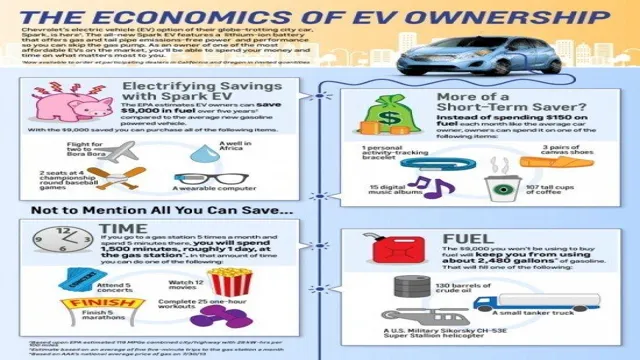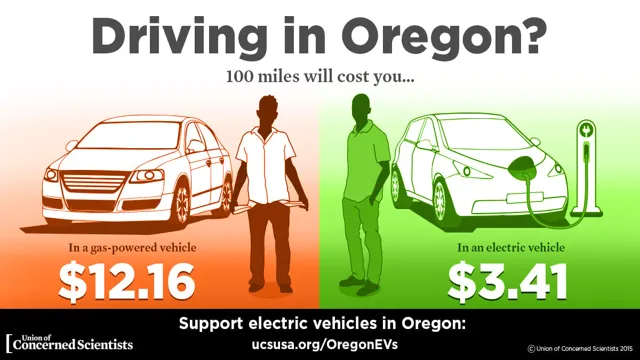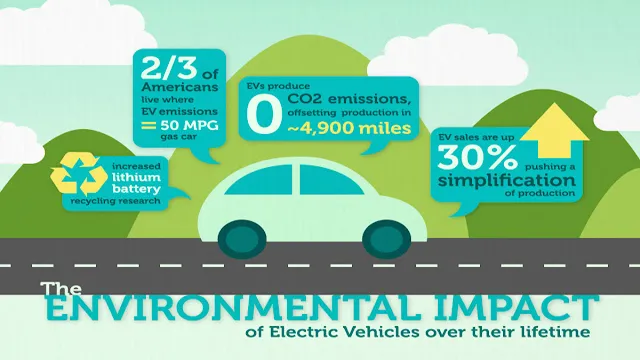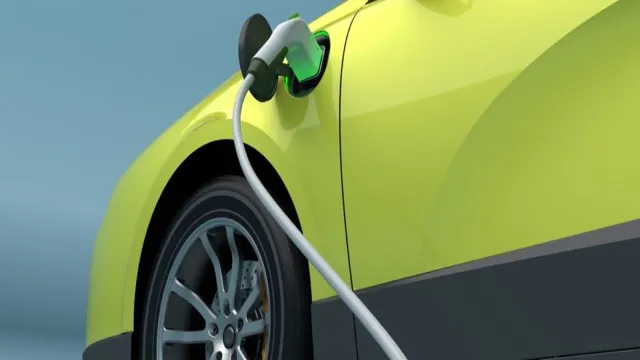Powering Up Savings: Exploring the Economic Benefits of Electric Cars
As electric vehicles become more prevalent, a question arises: what are the economic benefits of electric cars? While electric vehicles may have a higher upfront cost than traditional gasoline-powered cars, they can save you money in the long run. With zero emissions and fewer moving parts, electric cars require less maintenance and have lower operating costs than their gas-guzzling counterparts. Plus, with government incentives and tax credits available, it may be more affordable than you think to switch to an electric vehicle and help the environment at the same time.
So, are you ready to explore the economic benefits of electric cars? Let’s dive in!
Reduced Fuel Costs
The economic benefits of electric cars are numerous and varied, but perhaps the most significant is the reduced fuel costs that come with driving an electric vehicle. For those used to filling up their gas tank every week, the prospect of never having to visit a gas station again is certainly exciting. Instead of relying on expensive fossil fuels, electric cars are powered by electricity, which is often much cheaper per mile.
Additionally, with the rise of renewable energy sources like solar and wind power, the cost of electricity is likely to continue to decrease over time. While the upfront cost of an electric car may be higher than a traditional gas-powered vehicle, the long-term savings can be substantial, especially for those who drive frequently or for long distances. So if you’re looking to save money on transportation costs, while also making a positive impact on the environment, an electric car may be the perfect choice for you.
Lower electricity prices vs gasoline per mile
Reduced Fuel Costs One of the main benefits of electric cars is the reduced fuel costs compared to gasoline-powered vehicles. With electricity prices typically lower than gasoline prices per mile, drivers can save a considerable amount of money over time. Additionally, electric cars require less maintenance than traditional cars, resulting in further savings for drivers.
While the upfront cost of an electric car may be higher, the long-term benefits of reduced fuel costs and maintenance expenses make it a smart investment. Plus, who doesn’t want to save money on gas? It’s like getting a discount every time you drive! So, if you’re looking to save money and reduce your carbon footprint, consider making the switch to an electric car.
Government incentives and tax credits
One of the benefits of government incentives and tax credits for electric vehicle (EV) owners is the reduced fuel costs. As gas prices continue to rise, switching to an EV can save you money on fuel costs. Additionally, some states offer incentives for EV owners, such as access to HOV lanes, reduced toll fees, and free parking.
These perks not only save you money but also make your commutes and travels more convenient. It’s important to research the incentives and credits available in your state to take full advantage of the benefits of driving an EV. By doing so, you can save money on fuel and even earn money back through tax credits, all while making a positive impact on the environment.
Lower Maintenance Costs
One of the major economic benefits of electric cars is their lower maintenance costs compared to traditional gasoline-powered vehicles. Electric cars have fewer moving parts and require less frequent maintenance, which can result in significant long-term savings for drivers. For example, electric cars do not have oil changes, fuel filters, or spark plugs that need to be replaced, and they also have regenerative braking systems that can reduce wear and tear on the brake pads.
As a result, electric cars often have a lower total cost of ownership over their lifetimes than comparable gasoline-powered cars, making them a smart financial choice for many drivers. In addition to lower maintenance costs, electric cars also have lower fuel costs as electricity is generally cheaper than gasoline, providing even more savings for drivers. Overall, electric cars offer a range of economic benefits that make them an attractive investment for those looking to save money on their transportation costs.
Fewer parts and less wear and tear on components
As technology advances and innovations continue, machines and equipment are becoming more efficient and durable. One benefit of this progress is fewer parts and less wear and tear on components, resulting in lower maintenance costs. When machines have fewer parts, there is less need for routine maintenance and repairs, ultimately reducing operating costs.
This is particularly true for industries that rely on heavy-duty machinery that can be costly to maintain. By investing in machines with less complex components, businesses can save significant amounts of money over time by reducing downtime and repair expenses. It’s like owning a car with fewer moving parts: it simply requires less upkeep and fewer repairs.
Overall, investing in equipment with fewer parts can be a wise decision for companies looking to cut maintenance costs while maintaining high levels of productivity.
Far less frequent need for oil changes, tune-ups, and brake replacements
One of the major benefits of electric cars is that they have lower maintenance costs than traditional gas-powered vehicles. This is because they have far fewer moving parts, which means that there is far less wear and tear on critical components such as brakes, transmissions, and engines. As a result, electric vehicles require far less frequent oil changes, tune-ups, and brake replacements, which can save owners hundreds or even thousands of dollars over the life of the vehicle.
Moreover, electric cars do not require the same level of ongoing maintenance that gas-powered cars do, such as regular oil changes and tune-ups, which further reduces maintenance costs. This means that electric car owners can enjoy significant savings over the life of their vehicles, making them a cost-effective and energy-efficient choice for anyone looking to reduce their environmental footprint while also saving money on car maintenance. So, if you’re looking for a vehicle that’s affordable to own and maintain, an electric car is definitely worth considering!
Longer-lasting batteries with fewer replacements needed
One of the biggest advantages of using longer-lasting batteries is the significantly reduced maintenance costs. With traditional batteries, you would need to replace them periodically, which can be a hassle and an additional expense. However, with newer, longer-lasting batteries, the need for replacements is greatly reduced.
This means that you will be spending less time and money on maintenance costs and more time on your business operations. This is especially important in industries where the equipment is located in hard-to-reach places or in remote locations, where frequent maintenance can be time-consuming and expensive. With a longer battery life, you can save money on maintenance and reduce the time and effort required to keep your equipment running smoothly.
So invest in longer-lasting batteries to lower your maintenance costs and protect your bottom line.
Environmental Savings
Electric cars offer numerous environmental benefits that can result in significant economic savings for both individuals and society as a whole. The most obvious savings come from reduced greenhouse gas emissions. Because electric vehicles produce zero tailpipe emissions, they greatly reduce the amount of harmful pollutants released into the atmosphere.
This not only yields cleaner air but can also save billions of dollars in healthcare costs associated with air pollution-related illnesses. In addition, electric vehicles are up to three times more energy-efficient than traditional gas-powered vehicles which can lead to substantial savings for owners in the form of lower fuel costs. Lastly, electric vehicles can also prove to be cost-effective in the long run as they require less maintenance than gas-powered vehicles, such as fewer oil changes and brake replacements.
Overall, electric vehicles offer a clear pathway to a more sustainable future while also providing tangible economic benefits.
Reduced greenhouse gas emissions
Reduced greenhouse gas emissions are a vital aspect of our collective responsibility to the environment. By lowering the amount of greenhouse gases we emit, we can make a significant impact on reducing climate change, and preserving our planet for future generations. The environmental savings from reduced greenhouse gas emissions are enormous, including decreased air pollution, improved public health, and greater energy efficiency.
By adopting renewable energy sources like solar and wind power, as well as making changes to how we use and produce energy, we can dramatically reduce our carbon footprint. These efforts not only provide a better future for our planet but also help to create new job opportunities in green energy sectors. By making individual choices to reduce our environmental impact, we can work towards creating a more sustainable future for all.
Lower dependence on foreign oil
Lowering our dependence on foreign oil has a significant impact on the environment and sustainability. By reducing the amount of oil that we import, we’re also reducing the number of greenhouse gas emissions that are released into the atmosphere each year. This is because production and transportation of oil contribute massively to carbon emissions.
With less oil coming in from foreign countries, we can shift our focus towards renewable energy sources such as solar, wind, and hydroelectric power, which produce little to no carbon emissions and provide cleaner energy. We would also reduce the environmental destruction caused by oil spills and the production process of oil. It’s important to understand that switching to renewable energy is not only critical to protecting the environment, but it’s also key to improving energy security by reducing our reliance on imports.
So, let’s make a conscious effort to lower our dependence on foreign oil and embrace a cleaner and greener future for all!
Total Cost of Ownership Comparison
Electric cars offer significant economic benefits over their gas-powered counterparts. While upfront costs of electric cars may be higher, total cost of ownership proves to be significantly lower. Electric cars require less maintenance, have fewer parts that need replacing, and do not require oil changes.
Additionally, electric cars have better fuel efficiency leading to lower fuel costs. When considering depreciation, electric cars hold their value better than traditional vehicles. Another economic benefit of electric cars is the availability of tax incentives and lower insurance rates.
When comparing total cost of ownership over the lifespan of a vehicle, electric cars come out ahead in terms of cost and savings. These benefits make electric cars an attractive option for those looking to save money and reduce their environmental impact.
Conclusion
In conclusion, the economic benefits of electric cars are shockingly electrifying. From reducing our dependence on imported oil to saving us money in fuel costs, we can’t ignore the noticeable benefits to our pockets. Plus, the electric vehicle industry is creating new jobs and driving technological innovation.
As we transition towards a sustainable future, electric cars are clearly the smart choice for our wallets and the environment. So, get charged up and drive an electric car today!”
FAQs
What are some economic benefits of electric cars?
Electric cars have lower fuel costs compared to traditional gas-powered vehicles, resulting in significant savings for their owners. Additionally, electric cars have fewer moving parts and require less maintenance, leading to further cost savings over time.
Are there any tax incentives for purchasing an electric car?
Yes, many countries offer tax incentives for purchasing electric cars as a way to encourage the adoption of cleaner transportation. These incentives can include tax credits, rebates, and reduced registration fees.
Can electric cars help reduce overall energy costs?
Yes, electric cars can help reduce energy costs by using electricity stored in their batteries during times when electricity demand is low. This helps to balance the energy grid and can reduce the need for expensive peaker plants to be brought online during peak demand periods.
Do electric cars have a positive impact on the environment?
Yes, electric cars have a much smaller carbon footprint compared to traditional gas-powered vehicles, as they emit no harmful pollutants or greenhouse gases. This makes them a much cleaner transportation option and can help to reduce the overall environmental impact of transportation.





